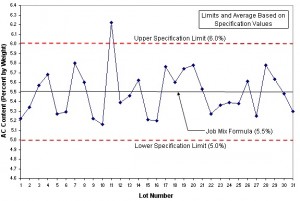Six Sigma and Lean – What have I learned?

So what have I learned since the beginning of the class? Other than the actual course content and technical stuff anyway?
Well, a few preconceived notions bit the dust. I originally planned on continuing through the next course to get my Black Belt, but I’m not sure I will do that any more. Here is a list of roles in the Six Sigma field according to Purdue:
Executive: Provides the direction and alignment for the success of LSS throughout the organization. Links LSS to corporate strategy.
Master Black Belt: “Keeper” of the LSS process and serves as an advisor to senior leadership, mentors Black Belts and Green Belts.
Black Belt: Full-time quality professional and change agent who leads project teams and handles detailed analysis required by DMAIC and DMADV methodologies. Black Belts do not have to be experts in the processes that are under review.
Green Belt: Works on projects on a part-time basis and generally works on projects that are compatible to their skills and knowledge. Have a clear understanding of DMAIC methodology and can apply the tools to the project at hand. Can serve as a team member for complex projects and team leader for simpler projects. Usually a subject-matter expert.
Project Champion: Process owner that provides business focus for LSS projects. Support the project team by removing barriers to success and providing the necessary resources.
Process Owner: Owns the processes that are being improved. Must sustain the changes that have been implemented in their area.
What I do is specialize on automation with an emphasis on control systems and machine building. I consider myself more of a “subject matter expert” than a “full time quality professional”. As I start my new consulting practice I will have a much stronger background and emphasis on the business and quality aspects of automation, but I remain a technical guy.
So what else did I learn? Well, I did have to change my opinion of how many business problems can be solved using actual formulas and mathematical tools. I have always thought of many business practices as being based too much on consensus (i.e. meetings) and opinion. I haven’t totally changed my mind on that, but there are a lot of really great tools and principles within the LSS framework that can help analyze and solve problems. Statistical tools and SPC are also a major part of the process along with OEE analysis in the control phase of a project. OEE tools and data acquisition relate directly to what I do in the controls and gauging part of my field. Having a greater understanding of the use of the data on machine processes after it is collected should help make me of greater value to my customers. The next classes I take however will probably be more focused on the Project Management field.
I guess I can officially say I am a Green Belt in Six Sigma and Lean Manufacturing now. It was a good experience overall and I learned quite a bit. Hopefully I will be able to use the techniques I have learned as I work on projects with new customers who have LSS programs in place.

Nice article…
I think the admin of this web page is actually working hard
in favor of his website, as here every information is quality based stuff.